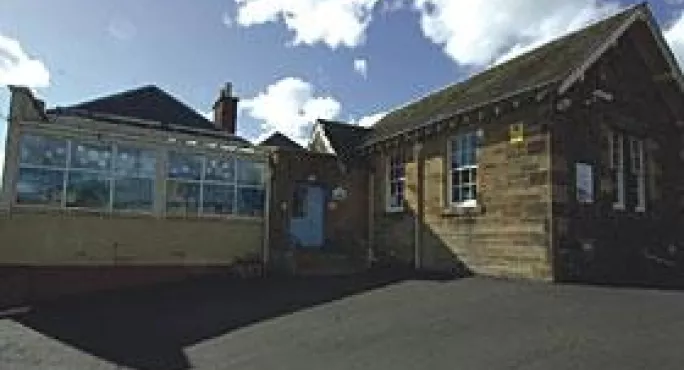Inspection ‘last straw’ that led to head’s death

A torrent of initiatives and policies from central government had made the role of a teaching head increasingly “unattainable”, “untenable” and “very difficult to hold on to”, the inquiry into the death of Borders headteacher Irene Hogg heard this week.
Miss Hogg, head of Glendinning Terrace Primary in Galashiels, where she also taught a composite P6-7 class, apparently took her own life in March last year following an HMIE inspection.
She died from “immersion in water and paracetamol toxicity”, according to police reports.
Teaching heads had to cope with ever-increasing workloads making it impossible to get the job done in the allotted hours, Miss Hogg’s former colleagues told the fatal accident inquiry at Jedburgh Sheriff Court.
A “stop sign” to stem the flow of directives coming out of government was something they wished for, said Katherine McQuillan, recently-retired teaching head of Heriot Primary.
The issue of workload was raised “lots of times” with Scottish Borders Council by the Borders Headteachers’ Association, she continued. The council made attempts to “limit things”, but the bottom line was they had to get the job done, she said.
Mary Ross, recently retired as teaching head of St Boswells Primary, also told the inquiry the job was “difficult” and involved working evenings and weekends.
She described Miss Hogg as a “good friend” and said she had phoned her just days before she died.
Miss Hogg’s voice sounded “very flat” and she said the inspection “had not gone particularly well”, Ms Ross told the inquiry. “I think she said `It’s all down to me’.”
She was concerned about Ms Hogg, but not unduly so, she continued. “She was exhibiting to me how I felt at the end of my inspection. She was tired and exhausted and feeling very down about it.”
Ms Hogg, who was 54, was not enjoying the changes to her job, her brother, Roger Hogg, said in his evidence. She was a private person who was very strong, forceful, able, confident and professional, said Mr Hogg. He had visited her school on several occasions and there was “never any doubt who was in charge”.
She was, however, getting bogged down in bureaucracy and administration and things she did not feel were “appropriate or necessary” were removing her from what she saw as her primary role of “teaching the kids”.
As a result, she had planned to take early retirement in June last year, just months after she was found dead, he said.
At the start of the school year in September 2007, she contacted the local authority to say she was “not coping in her job” and was depressed, something that was completely out of character, he said. She had confided in colleagues she was going through the menopause.
Additional support in the form of a supply teacher was put into the school, but a new, permanent staff member, due to take up post early last year, never materialised.
Then, in February, Miss Hogg received notification that Glendinning was to be inspected.
She was very stressed leading up to the inspection, very stressed during it and particularly stressed after it, said Mr Hogg.
Former headteacher David Kiernan worked three days free at Glendinning the week before inspectors arrived to “take the pressure off”, he told the inquiry. Nonetheless, the inspection process was “torturous” and in Miss Hogg’s mind had been “disastrous”, according to her brother. “The impression I had was she felt her whole professional being had been undermined by the outcome or by the process and the outcome,” said Mr Hogg.
He blamed the inspection for his sister’s death, saying if it had not taken place she would still have been alive today. It was “the straw that broke the camel’s back”, he said.
In a letter she left at her house in Melrose, Miss Hogg wrote: “I am so sorry. I have just muddled through the last few years. I have made a mess of everything.”
Another extract read: “I was always just trying to keep people happy and in the end I failed.”
Both comments referred to her work, Mr Hogg felt.
The family had asked for a fatal accident inquiry because “if this set of circumstances can happen to Irene, it can happen to anyone else”, he said.
Mr Hogg wanted the lead-up to the inspection at Glendinning and its aftermath to be examined to uncover any lessons that needed to be learned.
Principal teacher Sheila Wilson told the inquiry that Miss Hogg became upset during the inspection after a pupil spoke to one of the inspectors about a previous incident. One of the criticisms in the inspection report was that the original incident had not been recorded.
“I think she felt upset that the child felt she had to mention it. I think she realised she should have recorded the incident,” said Mrs Wilson.
The inquiry was told that the report stated that child protection issues were “not always recorded in accordance with local authority guidelines”. Mrs Wilson agreed that this had a “significant impact” on Miss Hogg.
Teaching headships have now been replaced in Borders’ schools with shared headships, and last year HMIE introduced new “proportionate or light- touch” inspections.
The inquiry continues.
Keep reading for just £1 per month
You've reached your limit of free articles this month. Subscribe for £1 per month for three months and get:
- Unlimited access to all Tes magazine content
- Exclusive subscriber-only stories
- Award-winning email newsletters



